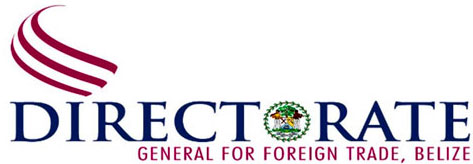Belize’s contribution to world trade is less than 0.01%, an insignificant value in the pool of goods and services traded globally. While Belize may be faced with this reality there are opportunities to stimulate trade growth through having fair, predictable, enforceable and business enabling global trade rules.
On the 7th December 2013, during the 9th Ministerial Conference of the World Trade Organization (WTO) in Bali, Member States agreed to the Trade Facilitation Agreement (TFA). The TFA is the first multilateral trade agreement successfully negotiated since the establishment of the WTO in 1995. The TFA contains rules on expediting the movement, release and clearance of goods, including goods in transit. It covers measures for effective cooperation between customs and other relevant authorities handling trade facilitation and customs compliance issues. The uniqueness of this agreement lies in the special treatment afforded to developing and least developed countries in implementation of the agreement. Technical assistance and capacity building provisions are enshrined in the Agreement to assist countries in meeting the criteria outlined therein.
Belize ratified the TFA on the 2nd September, 2015, making it one among the earlier countries to ratify the agreement. The TFA entered in force on the 22nd February, 2017 after two-third of the WTO Members ratified the agreement. As of July 2017, one hundred and twenty one WTO Members have ratified the TFA.
Since ratification, Belize has established the National Trade Facilitation Committee (NTFC) which serves as the coordinating body for the implementation of the TFA nationally. The NTFC is led by the Directorate General for Foreign Trade (DGFT) and the Customs and Excise Department being the two key agencies championing the TFA implementation. This coordinated approach allows for strategic, holistic and efficient allocation of resources towards achieving the gains envisaged in the agreement. As one of the fundamental pillars of Belize’s Trade Policy Framework, trade facilitation should reduce trade cost and improve competitiveness of producers and exporters and in the coming years, Belizean exporters will experience these benefits.
It is expected that with full implementation of the TFA countries’ trade costs will be lacerated by an average of 14.3 per cent, with developing countries having the most to gain, according to a 2015 study carried out by WTO economists. It is also expected that the TFA would reduce the time needed to import goods by over a day and a half and to export goods by almost two days, representing a reduction of 47 per cent and 91 per cent respectively over the current average. To date, Belize has implemented 33.3% of the WTO Agreement on Trade Facilitation (TFA) notified to the WTO on the 4th September 2016 as its Category A commitments. The remaining areas of implementation will be notified to the WTO as Category B and C measures in an effort to seek technical assistance, capacity building and donor funding.
While aid for trade plays an ever-increasing role for Belize in actualizing the benefits of the TFA, the ball is in the domestic producers and exporters to benefit from the Trade Facilitation Agreement and from trade overall. Fusion and fostering of Public-Private Partnerships cannot be overemphasized.

